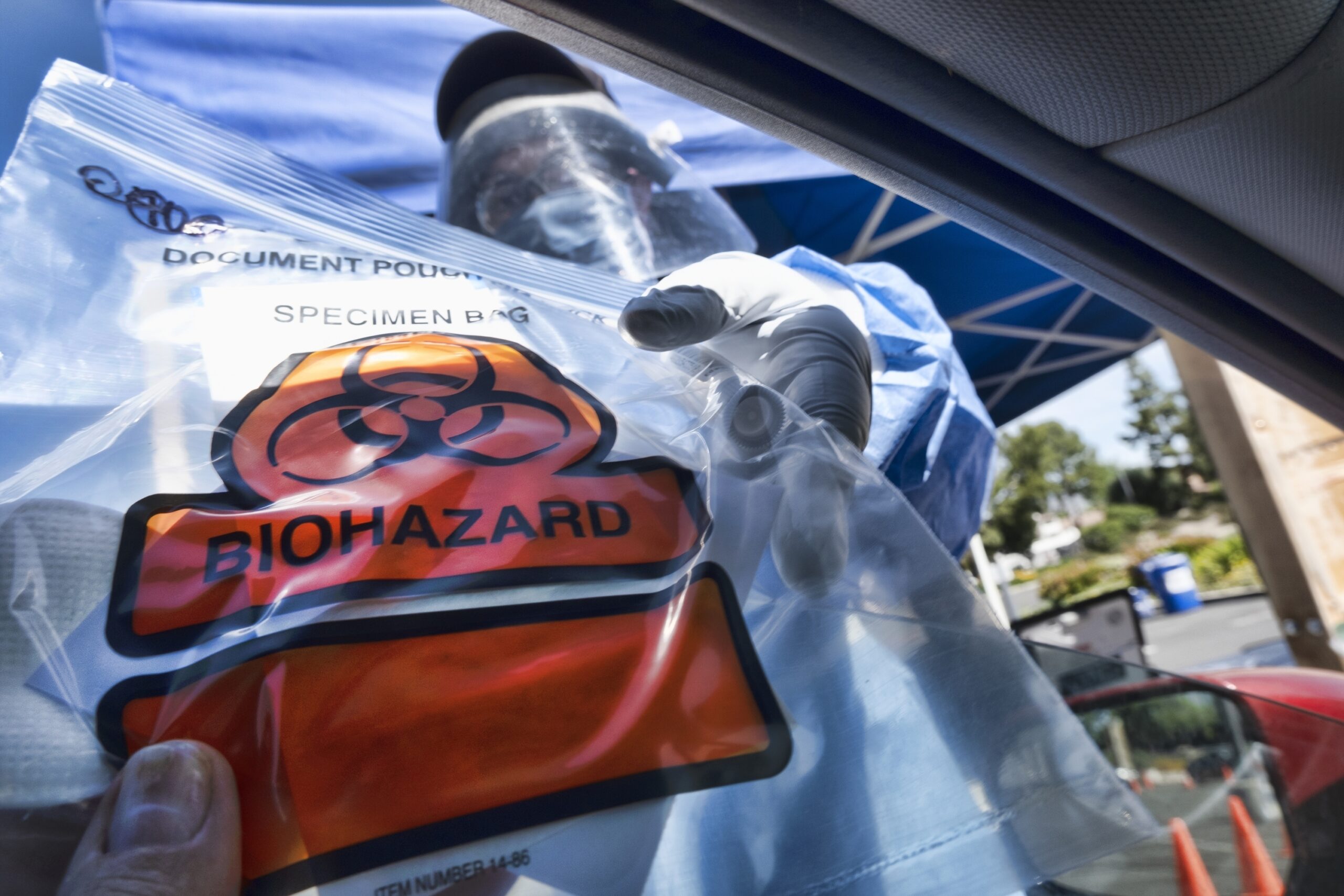Updated at 5:22 p.m. Tuesday
The latest Trump administration assessment of Georgia’s efforts to slow the spread of the coronavirus paints a mixed picture: while the state is making modest gains in some key areas, that progress has stalled out in others.
The report from the White House Coronavirus Task Force obtained by WABE says the number of new COVID-19 cases in Georgia remained stable in the week leading up to Sept. 20. For the second week in a row, the state ranks 14th in the country for new infections.
During that same time, the number of coronavirus diagnostic tests that return positive results dropped slightly, by just over 1%. The report says Georgia has the 17th-highest test positivity rate in the country, an improvement of four spots over the previous week.
“Georgia is making progress and, to sustain the gains, should continue the strong mitigation efforts statewide,” the report reads.
But looking at data from the Georgia Department of Public Health, that progress is uneven. The last few weeks have seen some counties in the state drive their numbers down, while others have seen outbreaks of new COVID-19 cases.
To Dr. Colleen Kraft, an infectious disease specialist at Emory University, it’s a sign that some communities are following public health guidance more closely than others.
“We still have hot spots where there are high numbers of cases per population just depending on the way the population is approaching masking and social distancing,” she said in a press briefing Tuesday.
Kraft also points to the decision by Gov. Brian Kemp over the summer to allow local governments to set their own face mask mandates after weeks of opposition to such a move.
That, she says, had led to different rules in communities across Georgia.
“We don’t have a clear decision on how we want to do that in the state. We’ve left it up to counties and cities to make these decisions,” Kraft said.
A spokesman for Kemp says he regularly takes calls with local government leaders to hear their concerns but says the governor is standing by his recent executive orders that offer few carveouts for cities and counties to set their own public health rules.
Leaders in Athens have asked for the ability to put more restrictive measures in place, such as a lower limit on the number of people allowed in bars and restaurants.
The call comes as the University of Georgia has seen a recent spike in the coronavirus transmission that’s led to student protests.
It’s a recommendation the White House has made for weeks now. The latest report says state leaders should consider a 25-person gathering limit, which is half the size currently allowed by Kemp’s coronavirus executive orders.
“Focusing on universities and decreasing community spread from students to local communities and hometowns is critical,” the report reads. “Recreating spreading events through bar-like gatherings in homes will result in continued high cases and those with comorbidities becoming infected.”
The suggestion comes the same week that the U.S. has now counted 200,000 deaths to the coronavirus, at least 6,600 of them in Georgia.
And at a time that the state’s own metrics on the pandemic show uneven progress in slowing the spread of disease.
Figures released Tuesday by the state Department of Public Health show newly confirmed coronavirus infections falling only slightly after about a week of holding steady.
Still, the number of diagnostic tests that return positive results are at levels not seen since August, not too long after Georgia’s summer peak in COVID-19 cases.
WABE asked the state Department of Public Health if its leaders were concerned about the recent figures and whether they could be a signal of a new wave of infections approaching. The agency did not respond by deadline.








